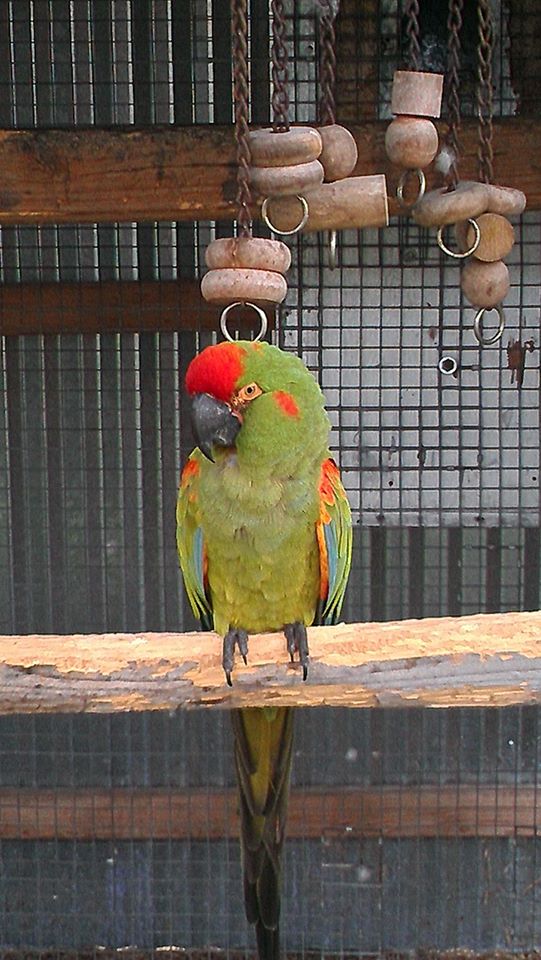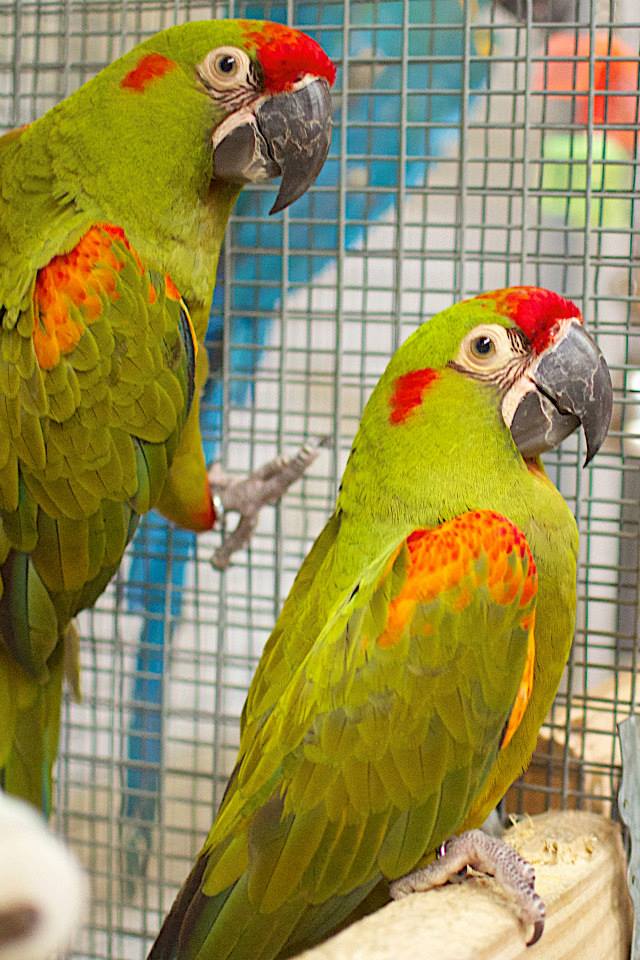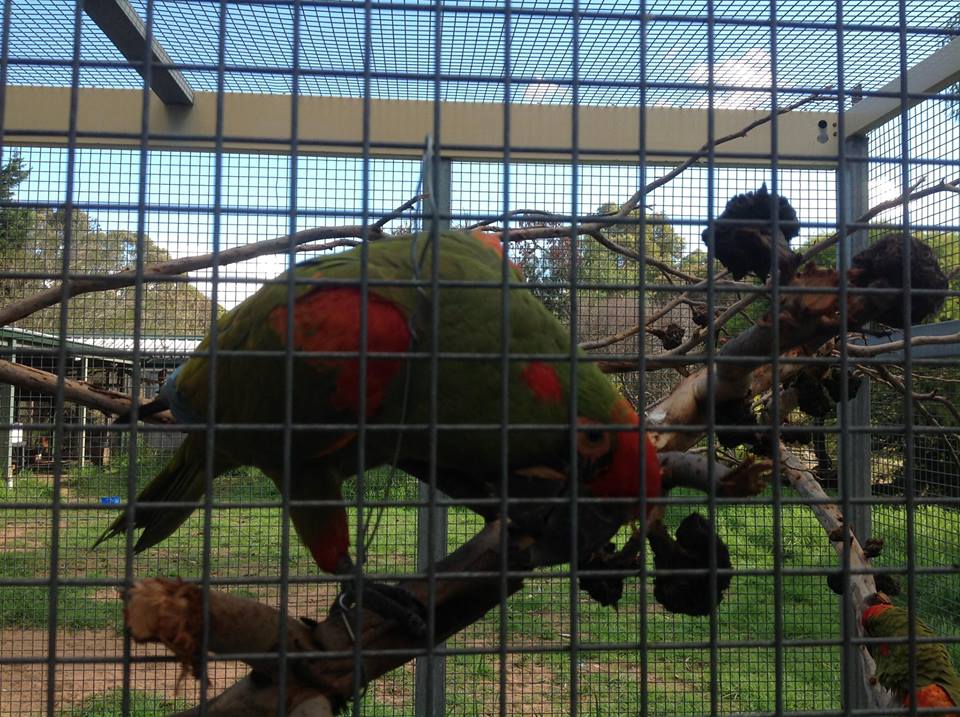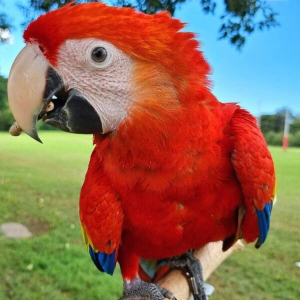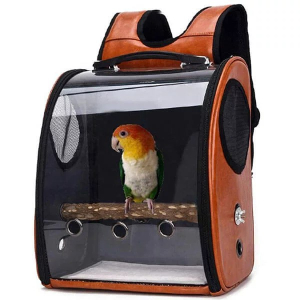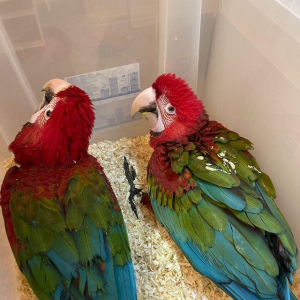Description
The Baby Red-fronted Macaw Ara rubrogenys, also called the Red-cheeked Macaw and Lafresnaye’s Macaw, is a lesser known macaw. This pretty little parrot is very friendly and one of the hardiest of the Macaw species. Although it was first described way back in 1847, it didn’t really come to the attention of aviculturists until a specimen was caught in 1973. The most likely reason it didn’t become common is because it’s only found in one place, the small Cochabamba valley in Bolivia.
This is the smallest of the large Macaws. It could almost be classed as a mini Macaw as it only reaches 24″ in total length. Mini Macaws can reach up to to about 20 inches (50 cm) in length, and the Red Front Macaw is just shy of that. Besides its small stature, another characteristic it has in common with the mini macaws is that its not as flamboyantly colored as the other large Macaws.
Care and feeding
In the wild the Red-fronted Macaw lives in a rather inhospitable mountainous environment, dry desert scrub lands moving into sparse woodlands at the higher elevations, and water is scarce. They have been observed feeding on corn and peanuts at small local farms, cactus fruits and several native fruits. They eat a variety of seeds, nuts, fruits, commercial pellets, insects and larvae.
Maintenance baby red fronted macaw
The basic cage care includes daily cleaning of the water and food dishes. Weekly you should wash all the perches and dirty toys, and the floor should be washed about every other week. A total hosing down and disinfecting of an aviary should be done yearly, replacing anything that needs to be freshened, such as old dishes, toys and perches.
Availability
Red-fronted Macaws for sale, though still rather rare, are becoming more available due to successful captive breeding. Though once they were among the most expensive of the Macaws they are less expensive now, more in line with the readily available species.

